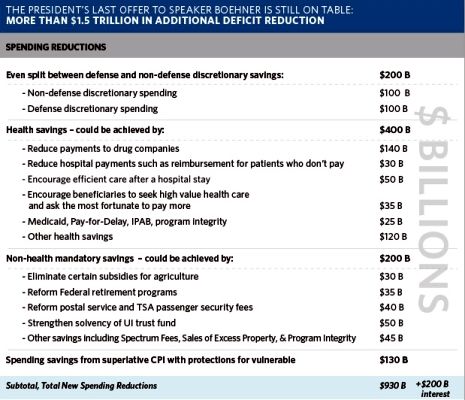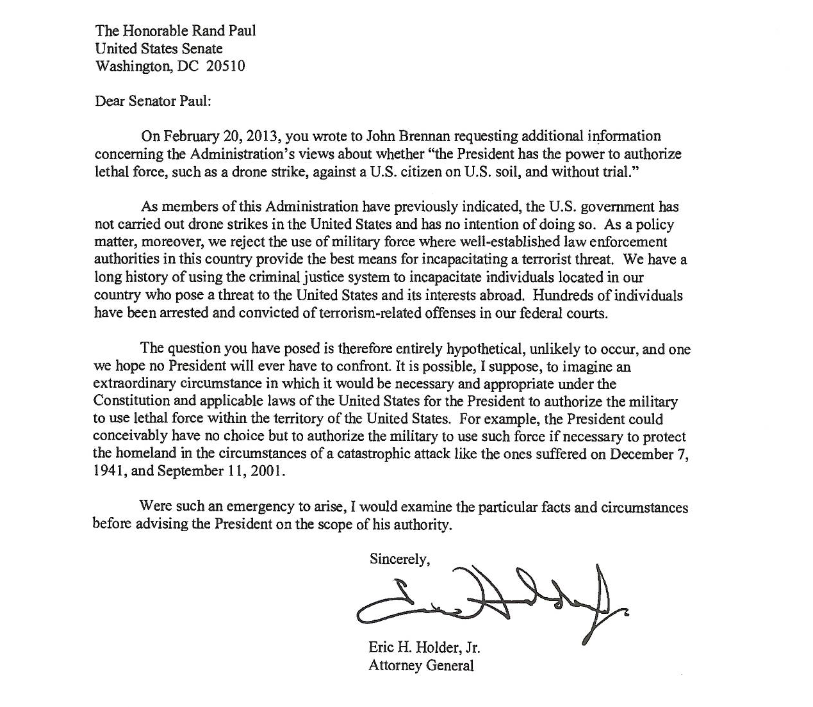Cross posted from The Stars Hollow Gazette
The shame of the Democrats and the so-called progressives is that it was a Tea Party Republican, Sen. Rand Paul (R-KY), who stood up for civil liberties and the ever expanding executive power with his thirteen hour filibuster. In his article at The Guardian, Glenn Greenwald shreds the progressive Democratic myths and distortions about Sen. Paul’s filibuster and its importance.
In Glenn’s first point, he notes the lack of any empathy for the those whose rights are most abused and dismissed with an “it’s not me; it’s them” attitude.
(1) Progressives and their “empathy gap”
The US government’s continuous killing, due-process-free imprisonment, and other rights abuses under the War on Terror banner has affected one group far more than any other: Muslims and, increasingly, American Muslims. Politically, this has been the key fact enabling this to endure. Put simply, if you’re not Muslim, it’s very easy to dismiss, minimize or mock these issues because you can easily tell yourself that they don’t affect you or your family and therefore there is no reason to care. And since the vast, vast majority of Democratic politicians and progressive media commentators are not Muslim, one continuously sees this mentality shaping reaction to these issues. [..]
For a political faction that loves to depict itself as the champions of “empathy”, and which reflexively accuses others of having their political beliefs shaped by self-interest, this is an ironic fact indeed. It’s also the central dynamic driving the politics of these issues: the US government and media collaborate to keep the victims of these abuses largely invisible, so we rarely have to confront them, and on those rare occasions when we do, we can easily tell ourselves (false though the assurance is) that these abuses do not affect us and our families and it’s therefore only “paranoia” that can explain why someone might care so much about them.
Second, what Sen. Paul’s critics missed, or just blithely ignored, was that this was about the president’s claim to have the authority to assassinate an American citizen on American soil, or for that matter, anywhere else.
(2) Whether domestic assassinations are imminent is irrelevant to the debate
To focus on that attack is an absurd strawman, a deliberate distraction from the real issues, a total irrelevancy. That’s true for two primary reasons.
First, the reason this question matters so much – can the President target US citizens for assassination without due process on US soil? – is because it demonstrates just how radical the Obama administration’s theories of executive power are. Once you embrace the premises of everything they do in this area – we are a Nation at War; the entire globe is the battlefield; the president is vested with the unchecked power to use force against anyone he accuses of involvement with Terrorism – then there is no cogent, coherent way to say that the president lacks the power to assassinate even US citizens on US soil. That conclusion is the necessary, logical outcome of the premises that have been embraced. That’s why it is so vital to ask that. [..]
Second, presidents change, and so do circumstances. The belief that Barack Obama – despite his record – is too kind, too good, too magnanimous, too responsible to target US citizens for assassination on US soil is entirely irrelevant. At some point, there will be another president, even a Republican one, who will inherit the theories he embraces. Moreover, circumstances can change rapidly, so that – just as happened with 9/11 – what seems unthinkable quickly becomes not only possible but normalized.
In his third and final point, debunks the argument that this was over Holder’s first letter to Sen Paul, not that his second was any more satisfactory.
(3) Holder did not disclaim the power to assassinate on US soil
Indeed, the whole point of the Paul filibuster was to ask whether the Obama administration believes that it has the power to target a US citizen for assassination on US soil the way it did to Anwar Awlaki in Yemen. The Awlaki assassination was justified on the ground that Awlaki was a “combatant”, that he was “engaged in combat”, even though he was killed not while making bombs or shooting at anyone but after he had left a cafe where he had breakfast. If the Obama administration believes that Awlaki was “engaged in combat” at the time he was killed – and it clearly does – then Holder’s letter is meaningless at best, and menacing at worst, because that standard is so broad as to vest the president with exactly the power his supporters now insist he disclaimed.
The phrase “engaged in combat” has come to mean little more than: anyone the President accuses, in secrecy and with no due process, of supporting a Terrorist group. Indeed, radically broad definitions of “enemy combatant” have been at the heart of every War on Terror policy, from Guantanamo to CIA black sites to torture. [..]
At best, Holder’s letter begs the question: what do you mean when you accuse someone of being “engaged in combat”? And what are the exact limits of your power to target US citizens for execution without due process? That these questions even need to be asked underscores how urgently needed Paul’s filibuster was, and how much more serious pushback is still merited. But the primary obstacle to this effort has been, and remains, that the Democrats who spent all that time parading around as champions of these political values are now at the head of the line leading the war against them.
This is not a country of secret laws and courts. It is incumbent on the Congress to do its Constitutional duty to question the Executive Branch and hold it in check when it over steps its Constitutional authority.
That this president has expressed the belief that he has the authority to assassinate Americans without due process, and in fact has, should be abhorrent to every American no matter which side of the aisle you favor.



 Popular Venezuelan President
Popular Venezuelan President